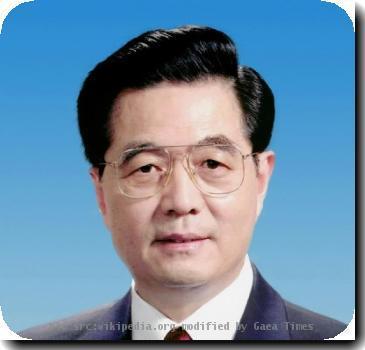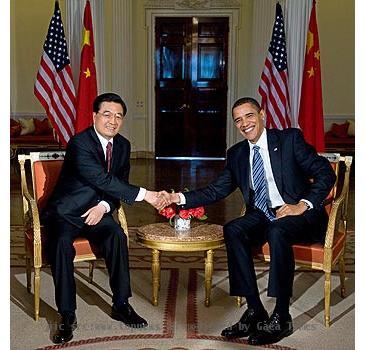Shanghai’s most famous activist kept quiet as city prepares to launch World Expo
By Christopher Bodeen, APWednesday, April 28, 2010
Most famous Shanghai activist kept quiet for Expo
SHANGHAI — Last week, Shanghai’s most celebrated dissident announced he would launch a manifesto on human rights to coincide with the World Expo, China’s biggest spectacle since the Beijing Olympics.
The next day, the police were at his door.
Feng Zhenghu’s “Expo of Judicial Injustice” was meant to be a sharp critique of Shanghai’s legal system just as China’s business capital prepared to show its best face to the world.
But the police confiscated the four computers in his apartment. They even removed the cables that gave him Internet access. As they prepared to leave, Feng stepped in front of them and said, “At least give me a receipt.” Surprisingly, they did.
Shanghai’s tightening security, a reflection of the government’s constant fear of dissent, could be seen on every downtown corner Wednesday as police moved into place ahead of Friday’s opening ceremony.
The Expo officially opens Saturday and is expected to draw 70 million people to visit pavilions from almost 200 nations during its six-month run.
In addition to Chinese President Hu Jintao, French President Nicholas Sarkozy, South Korean President Lee Myung-bak and European Commission President Jose Manuel Barroso are to attend the opening ceremony.
Activists and human rights groups say the celebration comes with a heavy dose of police control.
In a statement early Thursday, the Hong Kong-based group Chinese Human Rights Defenders said authorities have been detaining and harassing activists before the World Expo and even sent six people to labor camps for Expo-related activities. It said some of the six became activists after their Shanghai homes were demolished to make way for the event.
“Police in other cities have warned activists not to travel to Shanghai,” the statement added.
Feng, a 55-year-old former economist, became something of a celebrity this year for living for months in limbo at Tokyo’s international airport. Chinese authorities, angry at his writings on alleged wrongdoing by local authorities and his support for student protests, wouldn’t let him come home.
Feng’s odd life in a restricted area near immigration control reminded people of the stateless man played by Tom Hanks who was stuck at an airport in the movie “The Terminal.”
With no access to vending machines or a food court, Feng survived on food and clothes provided by tourists passing by. He used a sink inside a restroom to wash himself.
He returned to China on Feb. 12 after the Chinese government allowed him to re-enter the country.
Although he has a reputation for outspokenness and spent three years in prison on charges related to his rights work, he said he’s no threat to the Expo, which he said is a positive thing, “a chance to meet other cultures.”
But he also saw a chance to speak out.
Feng didn’t make clear the content of his manifesto during an interview Wednesday that was repeatedly interrupted by plainclothes security wanting to see journalists’ ID cards.
However, parts of the document have been posted on the website of the New York-based group Human Rights in China.
Among the freedoms it seeks are freedom of speech, the freedom to publish and the free flow of information online.
Feng said Chinese authorities should allow citizens to enjoy the rights they are legally guaranteed.
“All I ask is that they follow their own rules,” he said.
Despite police surveillance, Feng is free to come and go from the fifth-floor apartment he shares with his wife in the city’s northern suburbs.
As the Expo approaches, authorities seem worried other activists will seek out Feng as an ally.
“They think all the complainers will come to me,” Feng said. “I haven’t even heard from these so-called malcontents.”
Tags: Arts And Entertainment, Asia, Celebrity, China, East Asia, Greater China, Hu Jintao, Lee Myung-bak, Shanghai

